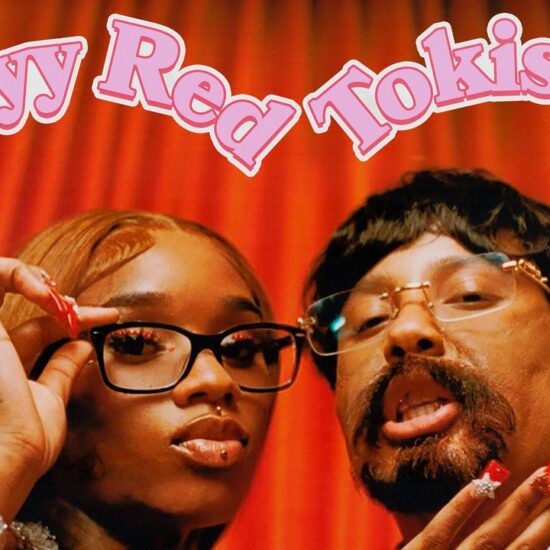For reviewers, it’s become a cliché when writing about a soft-pedaled, fan-service pop-star documentary to refer to it as an infomercial. The cliché isn’t always wrong. On occasion, I’ve used the I-word. But one reason that I stopped using is it seemed too easy — and also, I couldn’t help but notice that I was enjoying (and a getting a lot out of) certain music docs that were unabashed celebrations of their subject, even if they didn’t take the deepest dive or linger on the dark side. As a Billie Eilish fan, I went into “Billie Eilish: The World’s a Little Blurry” already knowing a lot about her; two hours and 20 minutes later, I emerged knowing a lot more, feeling closer to her process and her mystique. Ditto for “Gaga: Five Foot Two.”
So when I say that “Halftime,” the Jennifer Lopez documentary that opened the Tribeca Film Festival tonight (it’s being released June 14 on Netflix), truly does feel like an infomercial, I’m not using the term in a knee-jerk way. I’m using it because the film really is one.
Another thing a music doc will sometimes get called is a glorified “Behind the Music” episode. But if you watched a “Behind the Music” episode about Jennifer Lopez, it would probably deliver her backstory more vividly than Amanda Micheli’s movie does. From its first hanging-out-with-Jennifer-Lopez-as-she-self-actualizes scene to its very last, “Halftime” is a resounding celebration of J.Lo’s pride, her power, her tenacity, her wide-ranging talent, her Jenny-from-the-block grit, her commanding media image, her crossover passion, and her showbiz triumphs. These are things that should be celebrated, and Lopez, for all the fervor of her hard-won faith, has just enough flickers of self-doubt that the film’s spotlight on her achievements never becomes obnoxious. She’s got a right to crow and the charisma to make us want to crow along with her.
But the film’s obsession with her as an icon of success gives “Halftime” a naggingly unvarying, present-tense quality. There are no interviews with anyone but her family, friends, and closest associates — her producing partner Elaine Goldsmith-Thomas, her manager Benny Medina, her music director and choreographer. And while there are occasional dips into the past (her star-is-born moment with “Selena” in 1997, her debut as a beaming Fly Girl on “In Living Color,” the video for “Waiting for Tonight” — which, believe it or not, is about all we see of her as a pop star), “Halftime” mostly takes us behind the scenes of her recent career-capping highlights: the acclaim she received for “Hustlers,” after 20 years of featherweight comedies that were popular but critically derided; the awards-season train that “Hustlers” put her on; and, of course, her invitation to do the halftime show at Super Bowl LIV on February 2, 2020.
The film opens at Lopez’s family birthday party in July 2019, when she turned 50, and then basically follows her over the next six months, as she puts the halftime show together. Along the way, will she succeed in winning her very first Golden Globe award? (She’s nominated, for the first time since “Selena,” for best supporting actress for “Hustlers.”) Will she finally get that Oscar nomination? And what about the fact that she has to share the 12-to-14-minute Super Bowl halftime slot with Shakira, as if the executives in charge had decided that one Latina superstar wasn’t enough?
If you’re a fan of J. Lo, or even if you’re just a casual observer, none of this is the stuff of high documentary drama. What we feel, instead, is the ongoing meshing of her talent and image and ambition — the dancer who became an actress who became a singer (though she’d always wanted to do all three). “Halftime” justly salutes Lopez’s pride in her achievements, but it’s every bit as much a salute to her brand management.
She’s accompanied, throughout the film, by her 14-year-old daughter, but if you want to know anything — I mean, really, just a crumb! — about the complexities of her personal life, you won’t find it here, because the film views that entire arena with the same distaste that it brushes off the subject of Lopez as a fixture of the tabloids. Yet her romance with Ben Affleck — or, more to the point, the way that it was covered — actually marked a change in the culture, a ratcheting up of gossip mania to the nth power. So it seems odd for her, and for the movie, to dismiss it as not worth talking about.
The sections of the film that deal with the awards circuit are inadvertently revealing, since the way to campaign for awards is to telegraph that you don’t want it too much — but J.Lo puts her desire for accolades on the front burner. She’s the new queen of “You like me, you really like me!” and also its dark twin: “Oh, God, you don’t really like me at all!” There’s something very Age of TikTok about how brazenly she confesses to wanting these kudos — though the fact that she’s “representing” is never far from the equation. A guru would say: She’d get awards more if she wanted them less. “Hustlers,” no doubt, was an ambitious drama that was daunting for the women who made it to push through the system, yet there’s still a stage-managed aspect to the way that Lopez sees her characters. She’s a powerful actress; if she allowed herself to go into free-fall with a director who tapped an unexpected side of her, there’s no telling what she could do.
The halftime show is, of course, a triumph. It was one of the most accomplished ever, because the Super Bowl halftime is a form that Jennifer Lopez was put on earth to rule. She acted through her dancing (and drew on her “Hustlers” pole-dancing iconography). The film also captures how she waged a battle with the network brass over whether she could, in the show, make an Age of Trump political statement about border immigrants kept in cages. They wanted the cages out; she fought to keep them in — and won. In “Halftime,” Jennifer Lopez fails to get an Oscar nomination, but apart from that she never doesn’t triumph. That’s her triumph. But it makes you wish that she’d leave room in her persona for something other than winning.














